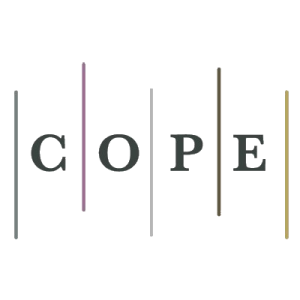2499 Views | 6749 Downloads
Brawijaya University's Community Service Programs in Climate Change Mitigation
Luchman Hakim, Yusron Sugiarto, Dian Siswanto, Irfan Mustofa, Rita Parmawati and Brian Rahardi
Abstract:
Introduction: Climate change presents critical global challenges, particularly in climate-vulnerable regions such as Indonesia, where agricultural systems and coastal ecosystems are at significant risk. In response, Brawijaya University in Malang has implemented two major community service initiatives—Doktor Mengabdi (DM) and Mahasiswa Membangun Desa (MMD)—to foster climate change mitigation and community resilience through academic-community partnerships. Methods: This study employs a mixed-method approach, combining qualitative interviews with 80 faculty members, quantitative surveys of 13,600 students, and participatory discussions with local community leaders across East Java. The research evaluates the implementation and impact of DM and MMD programs, focusing on sustainable practices in reforestation, agriculture, renewable energy, and waste management. Results: The DM program facilitated the planting of over 5,000 trees, monitored through the Tetenger Bumi mobile application, which also promoted sustained community engagement. In agriculture, 65% of 300 participating farmers adopted environmentally sustainable practices such as organic farming and crop rotation, leading to improved yields and reduced chemical input. Workshops conducted on renewable energy and waste management led to 75% of participants expressing intent to implement solar or biogas systems. Moreover, waste management programs initiated by MMD students resulted in 60% of villages establishing recycling initiatives and a 65% improvement in household waste separation. Tree-planting efforts contributed to a 15% reduction in landslide incidents in targeted areas, with 90% of residents endorsing the effectiveness of the 3R (Reduce, Reuse, Recycle) approach. Discussion: These outcomes demonstrate the tangible benefits of integrating academic expertise with grassroots engagement to promote environmental stewardship. However, challenges persist, including limited resources, infrastructural constraints, and initial community resistance. Conclusion: Brawijaya University’s community service programs represent a promising model for climate change mitigation in developing regions. Ensuring their long-term sustainability and scalability requires strategic investment, ongoing stakeholder collaboration, and adaptive policy frameworks to address existing barriers and amplify community impact.
Keywords:
Climate change, community service, sustainable development, reforestation, waste management, university engagement

Citation: Luchman Hakim, Yusron Sugiarto, Dian Siswanto, Irfan Mustofa, Rita Parmawati and Brian Rahardi (2025). Brawijaya University’s Community Service Programs in Climate Change Mitigation. Horizon J. Hum. Soc. Sci. Res. 7 (S), 31–46. https://doi.org/10.37534/bp.jhssr.2025.v7.nS.id1292.p31-46
Download Full PDF



